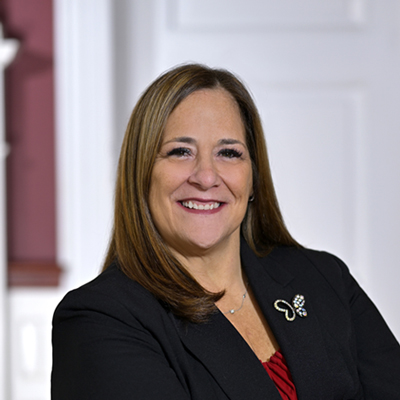Need to Talk with a Child Support Lawyer?
Divorce and considerations involving your children are never easy. Unfortunately, custody and child support concerns enter the picture. So, if you encounter these concerns, speaking with a child support lawyer near you is essential. Our child support attorneys help clients in Bucks, Delaware, and Montgomery County, PA.
By many estimations, nearly 50 percent of marriages in the U.S. end in divorce. Moreover, unmarried parents account for almost 25 percent of children born. How we support those children is a social and legal issue.
It's why PA child support agencies and agencies nationwide have become aggressive regarding child support issues.
How Do Courts Establish Child Support in Pennsylvania?
Under Pennsylvania support laws, children can benefit from both parents' incomes. The family court issues child support orders and bases the amount of child support on established guidelines.
A key determinant is the non-custodial parent's income and the number of children. In addition, courts consider other factors like the custodial parent's income and the children's needs.
Courts can deviate from child support guidelines. For example, support increases if there is a change in circumstances justifying the increase. Those circumstances may include any of these:
- An increase in the payer's income
- An increase in cost-of-living
- A decrease in the custodial parent's income
- An increase in the child's needs.
Conversely, the amount may be reduced if the circumstances justify it. If your child support obligations are unjustified, talk to a family lawyer near you for guidance.
A Child Support Lawyer Can Clarify Your Payment
In Pennsylvania, one parent typically pays the other for child support. However, determining child support requires considering the party's income and custody schedule.
If one parent has primary custody of the children, that parent typically receives support from the other. Courts define primary custody as overnight custody for over 50% of the year.
The Pennsylvania Domestic Relations Rules Committee determines the amount paid. It uses a mathematical formula to measure what portion of household income parents spend on their children. The notion is that they spend an equivalent amount.
The Pennsylvania legislature assesses the child support guidelines every four years and updates them to reflect the cost of living and other procedural changes. For instance, those updates took place in January 2022.
Generally, as your income and number of children increase, so will your child support. Consequently, based on those 2022 updates, support payments increased by a low of 10% to a high of 25% monthly. The percentage increase depends on your combined monthly income.
Again, a child support lawyer or family law attorney can help clarify your responsibilities. You can also learn more about support guidelines here.
Shared Expenses with Child Support
In Pennsylvania, established rules and guidelines determine the amount owed and consider each party's earning capacity to calculate each parent's share. In addition, the regulations require parents to share expenses such as health insurance, child care, and some activity expenses. The rules also require allocating the children's medical expenses between the parties in proportion to their incomes.
Support calculations involve many nuances. Often, they involve one party having unusual or fluctuating sources of income or an unconventional custody arrangement. You can learn more about your earning capacity and its impact on child support payments by clicking here. In addition, a child support lawyer near you can help clarify any questions about support payments.
If one parent is delinquent or fails to pay, courts can take measures to ensure that support. For instance, those measures include taking support amounts from tax refunds, seizing real estate, or seizing other personal property.
Modifications to Child Support in PA
Courts can modify support based on circumstances, including changes to the custody schedule and the party's income. However, child support in Pennsylvania terminates once a child turns 18 and graduates from high school.
That's true unless a child has special needs or disabilities that impact their ability to self-support. Then, the court may order child support to continue even after meeting those conditions.
In late 2017, Pennsylvania modified its child-support payments rules for a minor child residing with a third party. For instance, third parties can include a grandparent or a county agency. However, the calculation in that scenario differs from the calculation owed from one parent to another. It consists of the parents' incomes but not the caretaker's.
Parents or their family law lawyers can file a modification request to secure new orders from the court. That request must present grounds for filing and note the change in guidelines.
Support Laws Regarding Unmarried Parents
If an unmarried mother seeks child support, she can move to legally establish the father's "paternity" of the child. If the father fails to comply, she can file a lawsuit to establish paternity. And the court can order the father to comply. Reach out to a child support lawyer near you if you face that challenge.
Child Support Cases and (URESA)
The Uniform Law Commissioners passed the Uniform Enforcement of Support Act (URSEA) into law in 1950. It ensured that women and children (under 16) would receive financial support if the husband abandoned the family. It's one of the foundational laws of child and spousal support.
In 1968, that law changed so courts in different states could communicate, resulting in reciprocal support laws. In short, another state can enforce a child support order if a Pennsylvania court issues on,e.
So, a spouse is responsible for support even if they move to another state. As such, the law becomes reciprocal in the new state with a child support case. Consequently, they remain responsible for payments, medical needs, education, etc.
Our Family Lawyers Can Help
If you're facing a PA child support issue, contact a child custody lawyer. Our law firm has offices in Norristown, Doylestown, and Wayne, PA, and we're familiar with the Commonwealth's family laws.
Our attorneys will work with you to get the best possible result.




